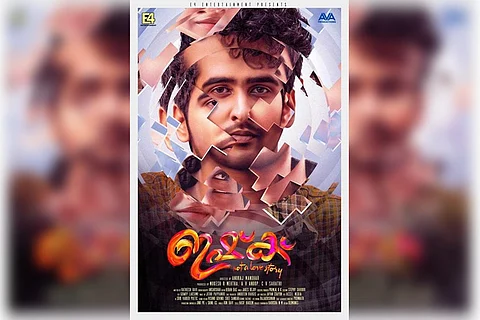

Like a fly in the perfect cup of chai, moral policing has been tarnishing the very developed image of Kerala in the last many years. I was a prey to moral policing too once. But beyond the theme of moral policing that is intimate to my experiences as a teenager, I liked Ishq for bringing out the fragility of masculinity. It takes a strong movie to show the subtle plays of patriarchy.
The movie begins with a romantic conversation between Sachi (Shane Nigam) and the beautiful Vasudha (Ann Sheetal). They decide to spend the day and night together on Vasudha’s birthday. As evening approaches, they are interrupted by a man named Alwin (Shine Tom Chacko) who claims to be a policeman but is itching at seeing young people in love and also lusts after women.
Alwin is accompanied by his friend (who has a wavering soft corner towards the couple) and they put the couple through atrocious experiences, giving the audience a nail-biting experience. Sachi feels small in front of Alwin, having failed to confront him. Alwin gets into the car with Vasudha in the guise of questioning her.
The incident disturbs Sachi and he goes on a quest for vengeance. Unable to confront Alwin directly, Sachi uses Alwin’s family as cheap bait to get to Alwin.
Sachi is a man ardently in love with Vasudha. When the young guy at Indian Coffee House stares at Vasudha, Sachi immediately goes to him and gives a sermon. Out of love, of course. But also, out of the power play. The guy who was ogling Vasudha looked young, a weaker portrayal of masculinity. Just like most of us who would buy Levi’s jeans at the store without any argument and force the tender coconut bhaiyya to give it for 5 rupees less, Sachi asserts his power over the weaker man. When he is confronted by Alwin and his friend at night, Sachi cringes in fear. He starts sweating and shivering. It takes a tight slap from Vasudha to silence Alwin.
Disappointed and sad that Sachi isn’t bothered by her emotional state as much as her chastity, Vasudha gets out of the car in tears. Sachi gets angry with Vasudha and walks away. Everything falls apart for Vasudha in a split second, and she makes continuous phone calls to which Sachi doesn’t respond.
Let’s think for a moment - who is wrong? Sachi. Who is calling? Vasudha. But none of us will be surprised because most women always do it. In intimate relations, we tend to become vulnerable. I have had men tell me- Anu, why did you have to make the move? My answer is- I don’t know. My brain has learned it from childhood to “adjust” with everyone that my immediate response always is sorry.
The movie narrates the failures of masculinity in the very attempts to save it. As different men of different power - the young man at Indian Coffee House, Sachi, Alwin, Alwin’s friend - interact, what does it lead to? And at what does masculinity become so fragile?
Sachi let’s go of all his morals to take vengeance on Alwin rather than trying to understand the emotional trauma that Vasudha went through. Masculinity is not in competition with the feminine. Masculinity is in competition with itself, men are competing with other men, constantly in power play.
Movies like Ishq and Ramante Edanthottam (where Elvis is a man who thinks there are no boundaries when it comes to his behaviour with his wife, which he justifies to be out of love) are different from Kumbalangi Nights.Kumbalangi Nights challenges the very evident, obvious patriarchy that the men who call themselves feminists/humanists and women can easily agree with. It’s also interesting to see how the character of Shammi is crafted in Kumbalangi as a figure with no empathy. When a character is stripped of love and intimacy, it becomes easier for men and women to take a stand and call Shammi bad.
But movies like Ishq and Ramante Edanthottam challenge the subtle plays of patriarchy, the one that’s muddled in love, intimacy and possession. Such movies talk about your own father, husband, and boyfriend. Challenging that would mean disturbing the entire foundation which sustains family life and love. And no one, including women, will easily admit to that. To talk of Shammi as a distant male chauvinist and psycho is easy, but to talk of Elvis in Ramante Edanthottam or Sachi in Ishq as bad men becomes difficult for men and women because they are your own family. Rightness and wrongness become blurry when it’s enmeshed in love. And that’s why it’s important to pay attention to these films.
Anu Karippal is a researcher and writer based in Bengaluru.